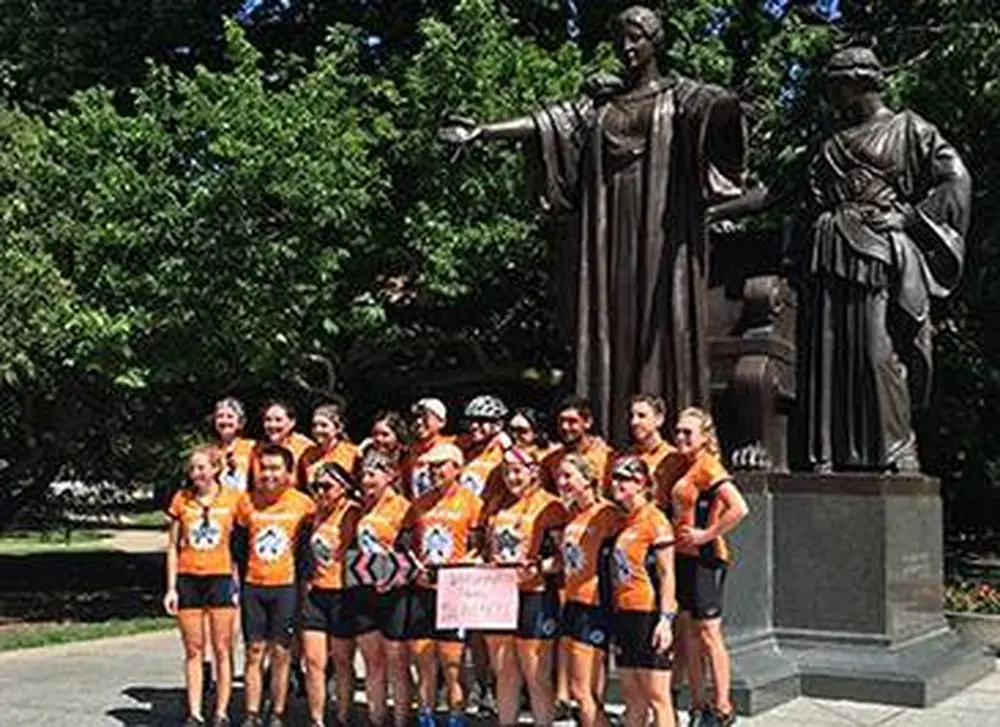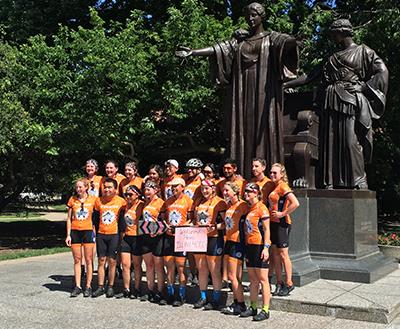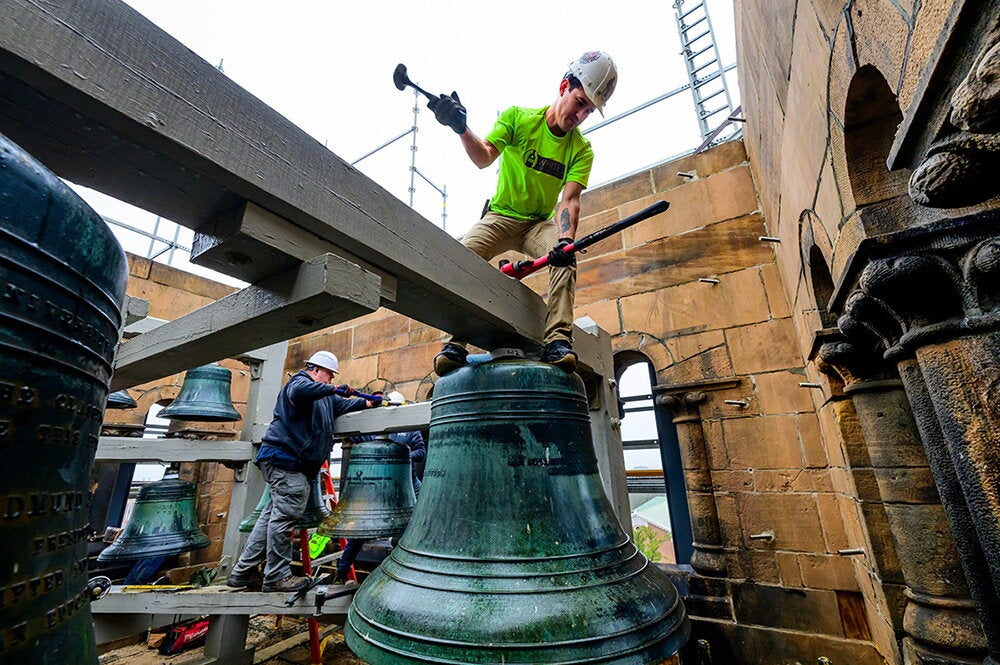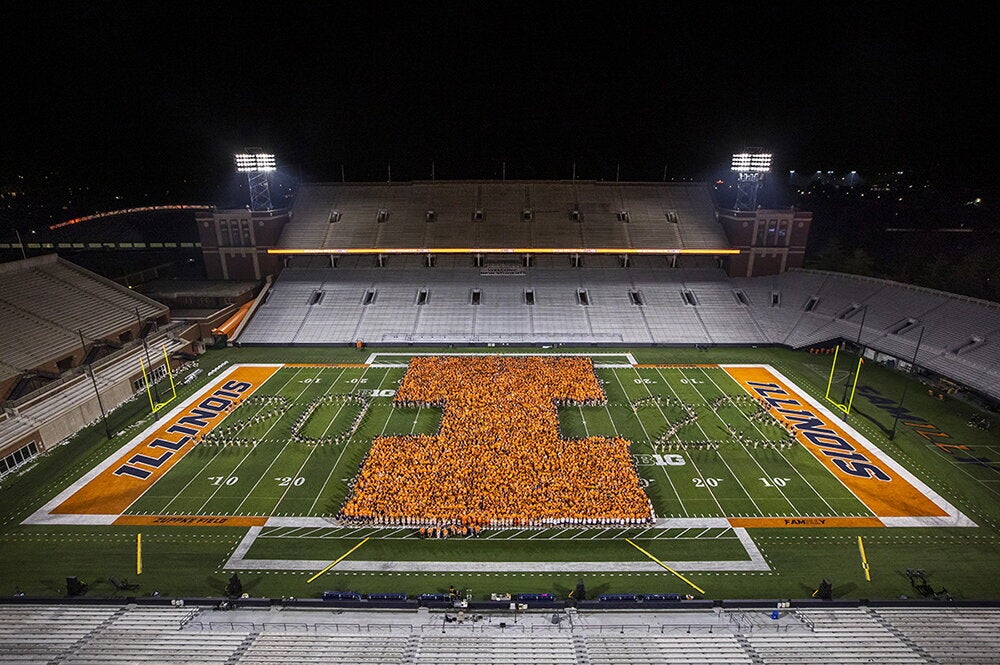

Ashley Young has spent the better part of every school year since 2012 preparing a group of fellow college students for the ride of a lifetime.
The students, all members of a group called Illini 4000, bike from New York City to San Diego every summer, raising money for cancer research along the way. Young, a senior inmolecular and cellular biology, is the oldest of the group and has been a member of its board of directors since her sophomore year.
“Doing this ride, we get to go to so many different styles of places, from a 200-person town in the middle of South Dakota to New York City and everywhere in between,” Young said. “That’s one of the really interesting aspects of this ride that helps you grow as a person.”
Young’s group of trainees totaled 20 this year, the vast majority of them from the University of Illinois, including nine LAS students. The group embarked on its 2016 ride in New York City on May 28, and has since traveled nearly 70 miles each day before reaching Watertown, South Dakota, last week, the halfway point of the trip by date.
Two students founded Illini 4000 in 2007 to address what they saw as a lack of funding for cancer research. The organization has raised $600,000 for cancer research since 2007, and more than $80,000 this year alone.
The group wanted to do more than raise money, however, so its members also began the Illini 4000 Portraits Project, a compilation of interviews and photographs of people affected by cancer who share their stories with the bicyclists along their journey.
“Our whole goal is to see how cancer is impacting communities, and we do that through the Portraits Project,” said Catherine Schmid, a sophomore in psychology and pre-med on her first ride with Illini 4000. “It’s sort of a community we’re trying to make online.”
More than 240 people affected by cancer in some way have contacted Illini 4000 to share their stories through the project. Schmid said people daily describe their personal struggles, even during brief pit stops at gas stations. One eventual portrait subject reportedly met the group while simply serving them ice cream, and ended up donating the entirety of his tip jar after learning more about the cause.
“Once they hear what we’re doing, people will donate to us, or ask if they can buy us a meal, and we see that every single day,” Young said. “These people have never seen us before and really have no stake in us as people. It’s really amazing to see that—everywhere we go, people are really kind.”
Young said the challenge of the ride, which leads riders through both the Appalachian and Rocky Mountains, is eased by these small acts of kindness. It also gets a bit easier as it goes, she says, particularly for the younger riders.
“This is their first experience with anything like this, and there’s so much they’re taking away from these experiences,” Young said. “It’s amazing how much they’ve grown in these first weeks. It’s really inspiring to me and that’s something that’s easier to see from my point of view. I tell them every day, ’You should be proud of yourselves.’”
Schmid said she found the first few weeks the hardest.
“We were all so physically exhausted, but we’ve really progressed as a group,” said Schmid, who will plan the route for next year’s ride. “Now, we’re one of the safest and strongest teams. And we just like being around each other a lot.”
The group members dedicate every day’s ride to someone they know affected by the disease. The Illini 4000 is making a difference on both an individual and a grander scale.
“Cancer never really affected my family, but I didn’t want to wait until it did to start fighting back,” Schmid said.


